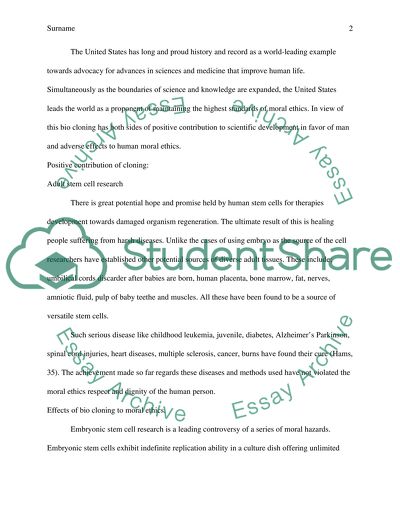Cite this document
(“The Ethics of Embryonic Stem Cell Research Essay”, n.d.)
Retrieved from https://studentshare.org/miscellaneous/1523615-the-ethics-of-embryonic-stem-cell-research
Retrieved from https://studentshare.org/miscellaneous/1523615-the-ethics-of-embryonic-stem-cell-research
(The Ethics of Embryonic Stem Cell Research Essay)
https://studentshare.org/miscellaneous/1523615-the-ethics-of-embryonic-stem-cell-research.
https://studentshare.org/miscellaneous/1523615-the-ethics-of-embryonic-stem-cell-research.
“The Ethics of Embryonic Stem Cell Research Essay”, n.d. https://studentshare.org/miscellaneous/1523615-the-ethics-of-embryonic-stem-cell-research.


